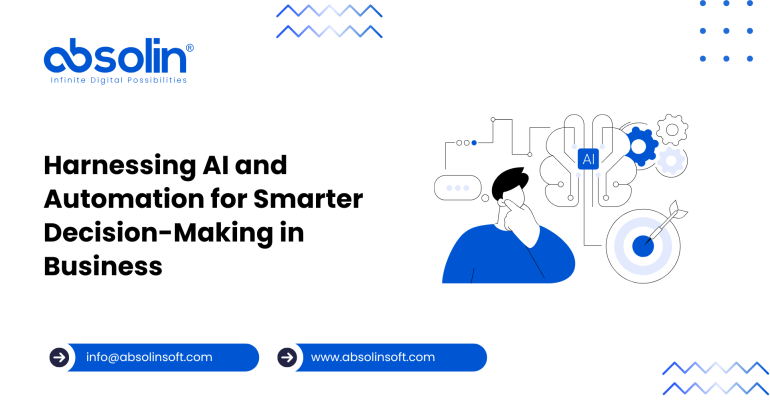Harnessing AI and Automation for Smarter Decision-Making in Business
In today’s digital-first world, businesses are generating vast amounts of data every second. However, raw data alone isn’t enough to drive success—it’s how companies leverage artificial intelligence (AI) and automation that determines their competitive edge. By integrating AI-powered automation into decision-making processes, businesses can streamline operations, enhance efficiency, and make more strategic, data-driven choices.
The Role of AI and Automation in Business Decision-Making
AI and automation technologies are revolutionizing how organizations approach decision-making. Here’s how they contribute:
- Data Processing at Scale
AI can process massive datasets at speeds impossible for humans, identifying patterns and correlations that lead to more accurate insights. - Predictive Analytics for Proactive Decisions
Machine learning models analyze historical data to forecast trends, helping businesses anticipate market changes and make informed strategic decisions. - Automating Routine Decisions
AI-driven automation handles repetitive tasks—like approving loan applications, managing supply chains, or analyzing customer inquiries—freeing up human resources for more complex problem-solving. - Real-Time Insights for Agility
AI-powered dashboards provide businesses with real-time analytics, enabling quick decision-making in fast-changing environments like stock markets, e-commerce, and logistics. - Enhanced Risk Management
AI algorithms detect anomalies and potential risks, whether in cybersecurity threats, fraudulent transactions, or operational inefficiencies, allowing businesses to take corrective actions proactively.
Key Applications of AI-Powered Automation in Business
- Marketing & Customer Insights
AI personalizes marketing campaigns by analyzing customer behavior, optimizing ad placements, and predicting purchasing trends. - Finance & Accounting
Automated systems detect fraud, predict cash flow, and handle transactions with greater accuracy and security. - Supply Chain Management
AI optimizes inventory, predicts demand fluctuations, and automates logistics for cost savings and efficiency. - HR & Talent Management
AI-driven recruitment tools analyze resumes, conduct initial screenings, and even predict employee attrition. - Healthcare & Diagnostics
AI assists in diagnosing diseases, automating patient interactions, and optimizing treatment plans.
Benefits of AI-Powered Decision-Making
- Improved Efficiency – AI automates time-consuming processes, reducing manual workload.
- Greater Accuracy – Machine learning eliminates human errors and biases in decision-making.
- Cost Savings – Automation reduces operational costs by streamlining processes.
- Scalability – AI-driven systems grow with business needs, handling increased data and transactions effortlessly.
- Competitive Advantage – Faster, data-driven decisions keep businesses ahead of competitors.
The Future of AI and Automation in Business
As AI technology evolves, businesses will experience even deeper automation, with AI not just assisting but autonomously making strategic decisions. Companies that embrace AI-powered automation today will position themselves for sustained success in an increasingly digital and competitive marketplace.
Conclusion
Harnessing AI and automation for smarter decision-making isn’t just an option—it’s a necessity for businesses aiming to scale and innovate. By integrating AI into their decision-making frameworks, organizations can improve efficiency, accuracy, and strategic foresight, setting the stage for long-term growth and success.






